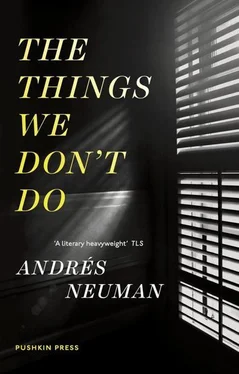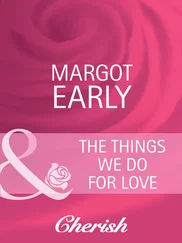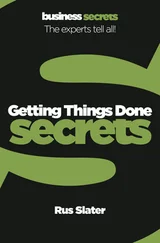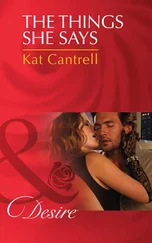YOU DON’T DECIDE to kill a child. At most, you decide to clench your teeth or tense your muscles. To aim at the head or lower the barrel. To open your hand or squeeze your forefinger a little. No more than that. Afterwards the consequences flood in at once. To me, that doesn’t seem logical. You think you are capable of doing something and you do it. It’s a verification, not something done to anyone. People are wrong when they start searching for motives. Destruction is a goal in itself, a solitary mission, it’s not about anything or anybody. It is something that is strangely possible. And the possibility itself is what convinces you. It is hard to do things in life. We all want to achieve our aims. I had an aim, and I carried it out. Maybe I made a mistake over what I was aiming for, but I made no mistake in accomplishing it. There’s a subtle difference there that not everyone understands.
I decided to obey an impulse, but at no moment do I recall ever having accepted the consequences of that impulse. I think it is out of all proportion for so many things to be unleashed at once, under the guise of a single one. For us to be responsible for our actions, it would be only fair to be asked for approval one by one. Reality ought to ask us: Do you accept making this movement? Very well, now do you agree that your movement causes this other one? Very well, now are you ready to accept that the second movement causes these reactions? And so on.
I am not in any way avoiding my responsibilities. I am simply distinguishing their different parts. Your curiosity is not the same as your decision. An impulse is not the same as a sentence. Anxiety is not the same as hatred. From not paying attention to these nuances, I did what I did. I am speaking from the heart. If at that moment I had known the child would really collapse, I would never have pulled the trigger. The rest I can accept.
IT WAS ME who killed Lennon, but I wasn’t his murderer. That winter was turning cold. I fired the gun.
I was hanging round on 72nd Street like so often before, the collar of my coat brushing my ears. I was trying to pluck up enough courage to walk over to the Dakota. However much of a coincidence it was, I am ashamed now to think that on that damned 8th December a lunatic and I had more or less the same idea. I am not what I appear to be. So I walked trampling the frost. That’s all. A night-time stroll, an autograph, and there you go. Let me take you down.
With my back to a frozen Central Park West, I was assailed by that fear, which, ever since, I have been unable to stop seeing as a portent. A fear icier than the wind, more slippery than the frost, more uncertain than the guard I began to mount, posted opposite the entrance to the Dakota, waiting for Lennon. My heart was pounding or, as it were, wouldn’t stop spinning round like a record underneath the black wool. The single and the ballpoint pen were waiting inside my overcoat. From time to time I felt them and tried to calm myself with their familiar shapes. At that moment in my memory it seems like it was drizzling, but I think I am mistaken. It was about ten at night and I was surprised: according to the information I had, he should have been back by now to give his son a goodnight kiss. It was said that these days he rose early and led the life of an exemplary parent, which, at our rebellious age, was foolishly inclined to disappoint us. Although he also strove to be a symbol of peace, which, as starry-eyed youths, was naively inclined to excite us.
After checking my watch for the umpteenth time, I was thinking of giving up when an awkward figure, less tall than I had expected beneath his flamboyant leather coat, turned the corner at Central Park West and 72nd. He came towards me with a zigzagging, rather comical gait. My heart skipped a beat and I felt a pricking sensation in my eyes: The eagle picks my eye. I had promised myself over and over that when the moment came I wouldn’t even blink, and yet I was screwing up my eyes trying to focus when I saw Lennon’s elongated back pass by two yards in front of me. I could see he was shaven, if imperfectly, and that his glasses were perched on the end of his nose, more in the manner of a Southern grandpa than an Oriental sage. These details vaguely reassured me, as if the possibility of going up to him had become much more feasible and natural than a moment ago. Come together right now over me .
He pressed a button on the panel beside the arched doorway, while with his other hand he rummaged in his leather coat the way someone looks for a lighter. Regardless of what everyone would keep repeating later on, I must say that Lennon was alone. And there, next to the outside entrance to the Dakota, I realized if I didn’t speak to him then, I would never be able to do it. I took two steps forward, my blood froze. But I took another two steps and felt an almost animal euphoria, as if I had crossed an invisible frontier and from then on anything could happen. He didn’t notice me until I opened my mouth and three hoarse words issued from my frozen lips, three vaporous words that ran out of steam: Sorry, Mr Lennon…
He turned abruptly, although his expression seemed quite relaxed. He scrutinized me, and I am afraid he instantly summed me up. I don’t know why in some way that hurt my pride: yes, I was a simple fan, but he didn’t have to realize it so instantly and without any introduction. I felt upset, I choked on my words. Half of what I say is meaningless. Mercifully, Lennon broke the ice by asking me my name. Sometimes I think he was probably just being polite; other times I think that was the best question Lennon could have asked me. Nowhere man, the world is at your command. Restored to my modest identity, I replied, pronouncing my surname very clearly as though I wanted him to memorize it, and next I said I would like him to sign my single as well as a separate autograph for me to carry round in my wallet. To my surprise, or at least contrary to what I had feared, Lennon said “my pleasure” and then “come on in”. I was about to say where to; but, having recovered from the shock, I stood aside to let him pass and followed him in.
We walked through a second door. As we made our way to the right-hand wing of the building, he asked if I was a student. I told him I was and dared to add that I played the guitar. Lennon made a funny gesture with his mouth and eyebrows that could just as well have meant “how nice” as “not another one”. While I rattled off the titles of some of his latest songs, we came to another door. Lennon was playing with his key ring and seemed to want to chat. No one’s going to believe this, I was thinking, when he said: “Do you fancy a cappuccino?” My legs began to quiver from sheer astonishment as he continued: “Come on up if you like, it’ll only take a moment, I left some papers at home and I have to go back to the studio.” Are you recording a new album? I asked. But Lennon simply smiled and inserted the key in the lock. “Go ahead,” he said, “you’re in luck, I’m in a good mood today: my son just learned to write his name.” Beautiful boy.
Today I see Lennon moving very slowly, unlike then. I see details in that lobby I can’t be sure existed. I do remember Chapman very precisely, standing next to the elevator doors. I don’t know how he got in, and I don’t care what the police said afterwards. It couldn’t have been easy, in any case, and this couldn’t have been his first attempt. But it was on that fateful night, not another, that he succeeded. Chapman had fair hair, and walrus-like features, and he was wearing a raincoat which he slowly unbuttoned as he walked towards Lennon smiling meekly. I could tell he wasn’t fat, but flabby round the waist. He gave the impression of being a complete moron. Mr Lennon, he said, in a very different tone from the one I had used in the entrance to the Dakota. It might sound big-headed of me to claim that was when I grew scared. Somebody calls you, you answer quite slowly. The fact is John didn’t seem to notice anything strange and replied, “Yes?” in a half-weary, half-absent-minded voice. You can talk to me . But Chapman, still smiling, with his walrus face, kept on opening his raincoat and those moist eyes of his, which began to look bloodshot. I should have known better. Lennon turned towards me, as if to say “you get rid of him”. That was why he didn’t notice the gun poking out of Chapman’s belt. Oh, you can’t do that. I moved forward and stood between them. Yes, I’m gonna be a star. It is possible at that point that Lennon still didn’t understand what was happening, because my body was blocking his view (already limited in that dimly lit lobby), and it even occurs to me he might have thought the whole thing was a shameful scene between two hysterical fans. I grabbed Chapman’s arm when he had already pulled out the gun. I fell on top of him. Nothing to kill or die for. We grappled on the floor. I tried to pin down his wrists. Chapman possessed the strength of desperate men. Happiness is a warm gun. All of a sudden, there was a resounding blast that roared up the stairwell like a tornado. Mother Superior jump the gun. Face up on the floor, Lennon was bleeding. I don’t wanna be a soldier, mamma, I don’t wanna die. I could see he was convulsing and his chest was becoming quickly drenched. I’m losing you. I got up. Another shot rang out. Then several more in quick succession. One and one and one is three: and there we were, the three of us, a Beatle, Chapman and me in the lobby of the Dakota, at 11.05 at night, each dead in his own way.
Читать дальше












